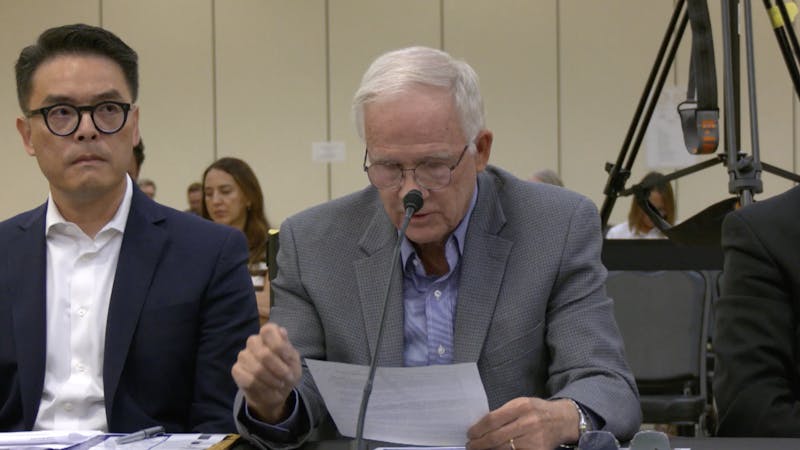College alcohol discussions fall short
Rice's 11 mandatory college-wide meetings were called at the most appropriate of times (see story, page 1). These meetings were in tandem with the hard liquor moratorium and sought to address the alarming rise of on campus alcohol abuse. Administration made the appropriate decision for drastic action; however, the colleges' execution of the meetings was not quite as commendable. While most colleges used a standard format with speeches from chief justices, presidents, Resident Health Advisors and EMS personnel, some presentations failed to capture the attention of students. With all due fairness, the succeeding with this sort of meeting was not easy; many students attended due to fear of penalty instead of genuine desire to be there. Furthermore, the cramped setting and poor acoustics made it difficult for student leaders to truly connect. Nonetheless, the meetings failed to address the issues behind the alcohol abuse and served more to defend the drastic action of the moratorium. While the stats about EMS calls were emphasized, the reasons behind those calls were harped on meagerly. By focusing so strongly on stats such as EMS calls, the meetings may have had the effect of scaring students away from making such calls. Since students are constantly told that a high volume of EMS calls is the problem, students may try to solve the problem by simply not calling EMS. Clearly this is not the message that administrative or student leaders intended to convey, but it is one which may have been perceived by students because of the approach taken at the meetings.
Furthermore, the actual implementation and penalty system of the moratorium has been left a bit hazy. There are also inconsistencies among colleges, making it difficult for students to know what action is legal when visiting another college. The logistics of this ban are up in the air, and it is a matter of time before the fluidity of the moratorium creates confusion or trouble.
The administration intervened at an appropriate time when danger was mounting; however, the student leaders did a poor job of involving their home colleges in the decision. The moratorium was approved before thorough college dialogue was complete, and students outside of the leadership were more or less blind sighted by this decision. Nevertheless, the decision was an appropriate one and it is the greatest hope of the Thresher that this extreme action jolts students into a state of greater responsibility.
More from The Rice Thresher

Rice announces Chao College as 12th residential college
Rice announced that the 12th residential college will be named Ting Tsung and Wei Fong Chao College Aug. 19. The college, set to open in fall 2026, will contain nearly 300 on-campus beds.
Dining access fund announced following on-campus unlimited meal swipes
Rice announced new food assistance programs on Tuesday to account for the controversial change in the on-campus meal swipe plan.

Rice disaster prediction model discussed at hearing on deadly Central Texas floods
The House and Senate Select Committees on Disaster Preparedness and Flooding held a hearing on July 31 in Kerrville to address the deadly July 4 flooding in Central Texas. The flooding along the banks of the Guadalupe River killed 108 people, including 37 children. In the charged hearing, Texas lawmakers and flood survivors criticized the local response to the disaster.


Please note All comments are eligible for publication by The Rice Thresher.